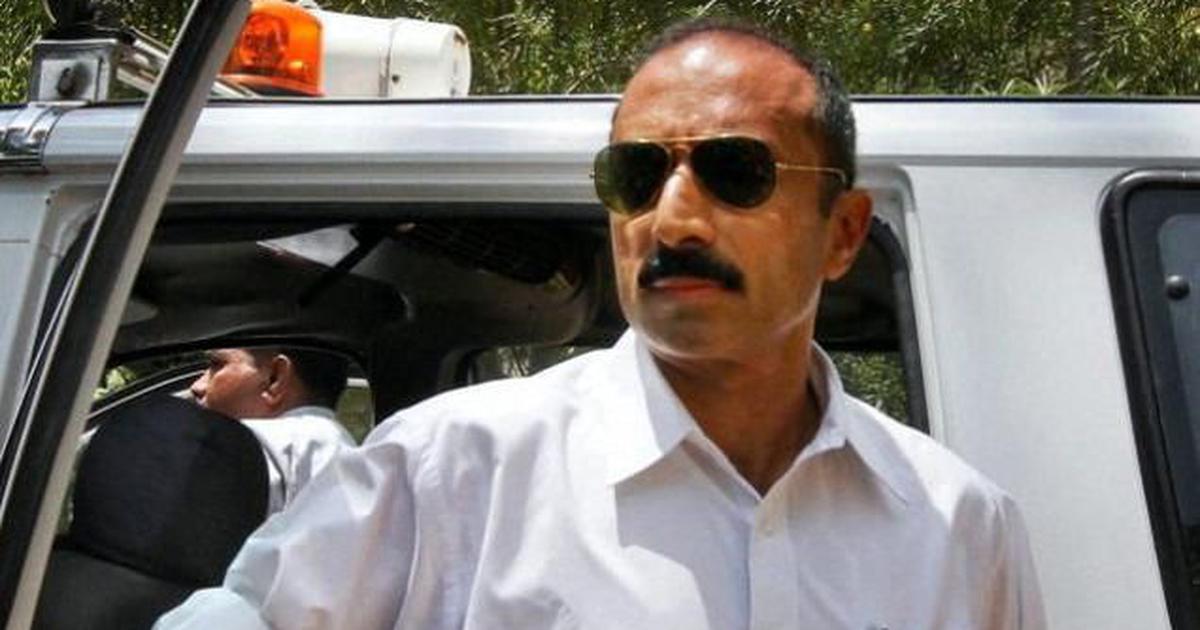
On June 20, 2019, a Jamnagar Sessions Court in Gujarat convicted the former IPS officer, Sanjiv Bhatt, in a case of custodial torture and death in November 1990, and sentenced him to life imprisonment. On the face of it, this may look like a case of delayed justice, but that is not the case here.
Sanjiv Bhatt is a known detractor of the Modi Government in general, and Narendra Modi in particular. In 2011, he had filed a writ petition in the Supreme Court seeking transfer of investigation into two FIRs filed against him in Gujarat, in order to falsely implicate him, owing to his deposition before the Special Investigation Team about the role of the then Chief Minister, Narendra Modi, who is the current Prime Minister, and the other high functionaries of the Government in the horrific Gujarat riots of February-March, 2002.
He further claimed to have disclosed an unholy nexus between the investigating agencies, prosecuting agencies and high office-bearers of the Gujarat state government to undermine judicial proceedings relating to not only the Gujarat riot cases but also cases of fake encounter killings involving senior level police officers and public servants in Gujarat. In particular, he sought to reveal a clear connection between high ranking functionaries of the State of Gujarat, those accused of cases pertaining to the 2002 Gujarat riots, the Sohrabuddin fake encounter case, and the Ishrat Jahan fake encounter case, the advocates of those accused in these cases. Because of these reasons, he was being targeted by the current Central Government and implicated him in numerous cases.
Prosecution sanction follows Bhatt’s anti-government statements
In the present case, the facts are that in November 1990, Bhatt, who had been posted in Jamnagar as Additional Superintendent of Police, had detained more than 100 people for causing a riot of which one, Prabhudas Madhavji Vaishnani, died in hospital after his release. Vaishnani was allegedly beaten up during his nine-day custody and died ten days after his release because of renal failure. Immediately, the victim’s brother lodged a complaint against Bhatt and five other policemen in 1995. Though cognisance of the FIR was taken in 1995, the Gujarat High Court had stayed the trial against Bhatt and others till 2011, when the stay was vacated.
The State of Gujarat also initially refused sanction for prosecution, but then gave the sanction. It is obvious that the case started proceeding, once Bhatt had spoken out publicly against Modi’s alleged role in the Gujarat riots. He was suspended from service in 2011 for minor indiscretions like remaining absent from service and was finally dismissed from service in August 2015 when his Supreme Court petition seeking independent investigation was being heard in the court.
Sanjiv Bhatt was further arrested in September 2018 in an alleged drug planting case dating back to 1996, and was denied bail by the high court and the Supreme Court. Even in the Jamnagar case, Bhatt had approached the Supreme Court few weeks back stating that most of the witnesses had not been examined, but the Apex Court refused to intervene, and only directed the trial court to finish the trial by June 20, 2019, when finally he was convicted and sentenced.
Systematic targeting
It is crystal clear that Sanjiv Bhatt is being systematically targeted, owing to his speaking out against the current dispensation, and revealing the nexus between the Gujarat police, prosecution and the State to protect the accused in the Gujarat riots cases or in the Gujarat encounter cases. After all, in Gujarat, not one police officer has been punished for more than 180 cases of custodial deaths from 2001 to 2016.
In that context, the sentencing of Sanjiv Bhatt to life imprisonment does not reflect the age-old adage of ‘law taking its own course’, but the selective application of law and the targeting of dissenters. It is laughable that a terror accused becomes a member of Parliament from the ruling party, while an upright police officer is being punished for doing his duty. It is hoped that the higher courts on appeal will overrule the sentence, and see through the façade of the prosecution for what it is, i.e., to crush the opposition. (IPA)




